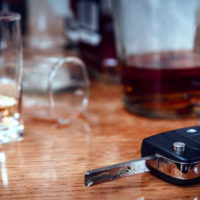How Does Administrative License Suspension Affect My DUI Case?

“Should I take a breath test?” That’s probably one of the most common questions that DUI defense lawyers hear, because the ALS process has such a significant bearing on a DUI case.
One way to answer this question is an unequivocal “yes.” There’s an old saying that if you fall into a hole, the first order of business is to stop digging. A DUI arrest certainly qualifies as falling into a hole. And, according to this viewpoint, nothing good happens after a breath or blood test refusal. So, although drivers are within their rights to refuse consent, they should take the test. The other answer is an equally unequivocal “no.” In most jurisdictions, the conviction rate in test cases is significantly higher than in non-test cases, and according to this viewpoint, there is no reason to give the prosecutor the evidence that’s necessary to convict you.
Further complicating matters, Florida has a refusal to submit law, which makes it a first degree misdemeanor to refuse the test if the defendant has at least one prior refusal. So, even if the driver “beats” the DUI, the driver could still be charged with a serious crime.
License Suspension Penalties
If the defendant does not provide a chemical sample when a peace officer lawfully requests one, the defendant’s license is automatically suspended for:
- One year (first refusal) or
- Eighteen months (subsequent refusal).
These penalties apply because Florida is an implied consent state. A restricted license with an ignition interlock device may be available for part of the suspension period. After the suspension expires, the defendant’s license is usually automatically reinstated provided that the defendant provides proof of insurance, pays a fee, and completes some other minimal requirements.
What Happens During the Hearing?
ALS hearings are not easy to win. The hearing officer is usually a DMV employee who serves as prosecutor, judge, jury and executioner. Furthermore, since this hearing is not a criminal matter, many of the defendant’s Constitutional protections do not apply, such as the right to not be a witness against yourself.
Nevertheless, the state has the burden of proof to show that:
- The stop was lawful, and
- The arresting officer issued the proper warnings.
Essentially, the ALR hearing is a probable cause pretrial hearing. If the officer did not have specific, articulable facts to pull over the defendant, such as possessing a reliable informer’s tip or seeing the defendant commit a traffic violation or other crime, the stop was not lawful and therefore the officer’s request for a chemical sample was not lawful either.
The second element is more procedural. The defendant must receive the exact warning prescribed by statute, and many warning cards have still not been updated with information from the refusal-to-submit law. If the officer read the wrong warning or read it in a language that the defendant didn’t understand, the hearing officer may throw out the suspension request.
Even if the defendant “loses” the hearing, the defense attorney has usually had a chance to cross-examine the arresting officer under oath and on the record, and this testimony could be very valuable at the trial.
Reach Out to Aggressive Attorneys
Tenacious representation at the LAS hearing is an important part of a DUI defense. For a free consultation with an experienced criminal law attorney in Port St. Lucie, contact Eighmie Law Firm, P.A. Home and jail visits are available.
Resource:
leg.state.fl.us/Statutes/index.cfm?App_mode=Display_Statute&Search_String=&URL=0300-0399/0316/Sections/0316.1939.html


